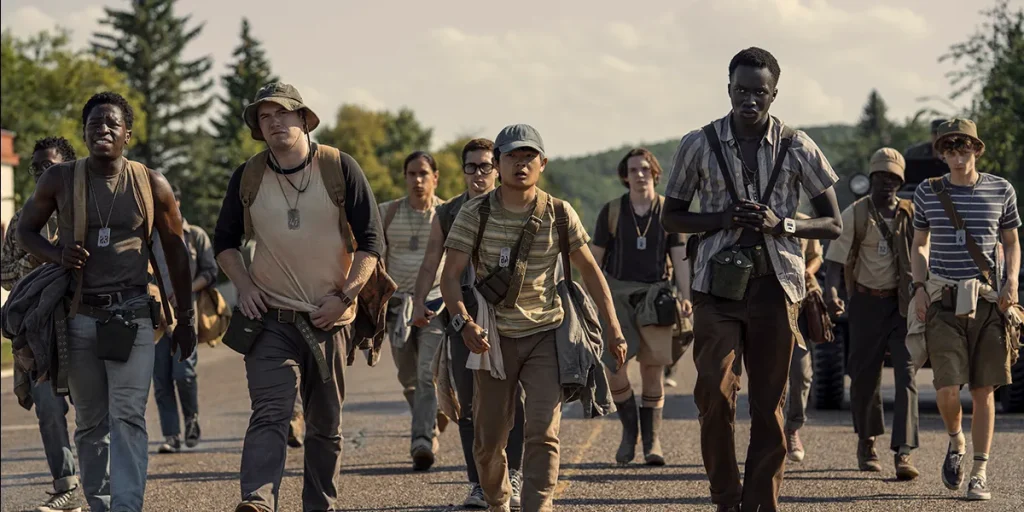The Long Walk is a Stephen King movie adaptation with a jarring final note. Let’s get the ending explained to explore what the film is trying to say.
Right up front, The Long Walk is easily one of the best Stephen King movie adaptations ever made. The premise is so simple to have explained, but it’s so instantly interesting: in a dystopian American future, an annual competition is held in which 50 teenage boys must walk together until only one is still going. If they slow down for too long, they die, and the winner is given wealth and one wish. Two of these participants are Ray Garraty (Cooper Hoffman, Licorice Pizza) and Peter McVries (David Jonsson, Alien: Romulus), who form a friendship despite knowing only one of them can survive.
The film does everything you’d want to see done with this idea, including putting its central characters through major changes to their outlooks on life. It raises questions about moment-to-moment living, the concept of choice in desperate times, and the merits of seeing the light through darkness. But one of the biggest questions many might have involves the film’s ending, and why certain characters make the choices they do. I personally had to sit with it for a bit to really grasp what The Long Walk wants us to take away from it. So, let’s discuss it in full, with the obvious disclaimer that I’ll be spoiling the entire movie from here on out.
Summary of The Long Walk and Its Ending
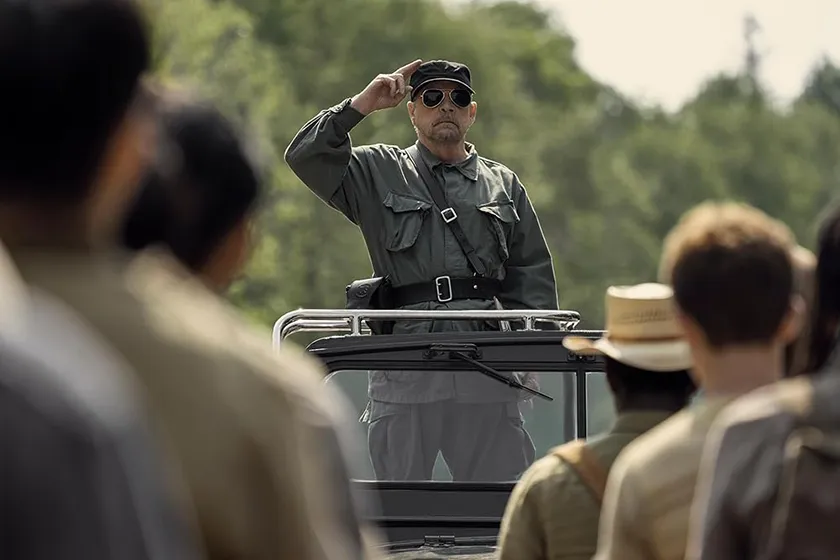
The long walk itself is a voluntary event, but almost every participant is there to win the prize and get through this future’s desperate economic times. Ray, by contrast, is there because the Major in charge of the contest (Mark Hamill, The Life of Chuck) shot and killed his father for teaching Ray the “old ways” and standing up to the regime. Ray wants to win so he can wish for an M16 and shoot the Major, getting revenge and maybe enacting change. Peter, meanwhile, has had a life of struggles and considers this walk just another one. He constantly helps Ray stay alive, not even believing he himself has the cutthroat spirit needed to win.
Peter also tries to talk Ray out of his plan, asking him to choose love over vengeance so he can do right by his mother (Judy Greer, Halloween Kills). Eventually, Ray and Peter are the final two walkers, but Ray ends up sacrificing himself to give Peter the win. Then, much to my surprise, a distraught Peter does his own 180 by wishing for a rifle and killing the Major while declaring, “This is for Ray.” He then sees an empty road ahead and continues walking, ending the film on a very emotionally conflicting note.
Why Does Ray Make His Ending Choice?
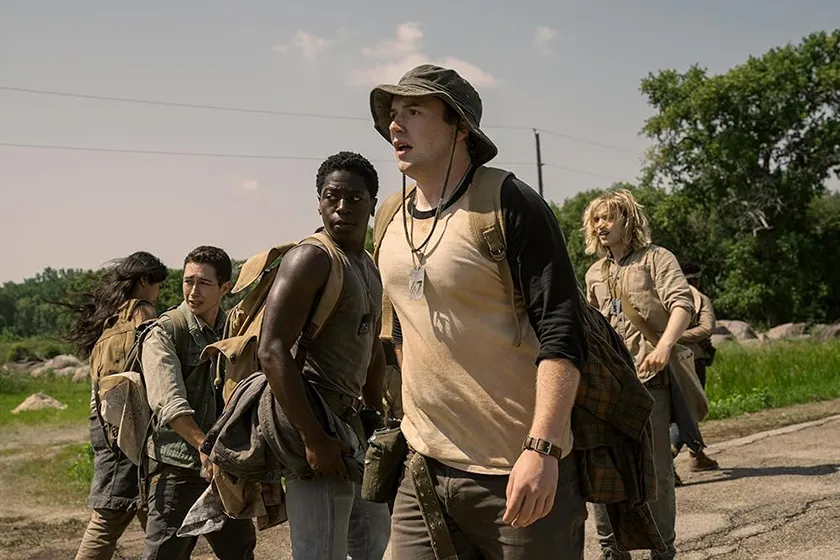
The Long Walk makes it clear that the walk itself has the ability to change its participants. Stebbins (Garrett Wareing), for instance, is one of the Major’s many bastard children who is walking for his father’s approval. But he ultimately chooses to not be such a pawn and goes out on his own dignified terms. Ray starts the walk with a very holistic, jaded worldview in which he believes sacrifice and violence are needed for change. But as the guilt of leaving his mother distraught and sacrificing his new friends piles up, you see him soften considerably. He even nearly gets himself killed by diverging from the walk to tearfully apologize to his mother.
So, when Ray and Peter are the only ones left, Ray has had an epiphany that Peter’s love-over-vengeance approach is more worth letting live. And because Ray professes that he still can’t see the good in everything like Peter can, he sacrifices himself so that good can keep living on. This sacrifice embodies most of what The Long Walk has been emphasizing: the triumph of hope over cynicism through hardship, and the importance of remembering what really matters in life when everyone is forced to keep walking through the same system as you… until Peter has his own turn in the exact opposite direction.
Why Does Peter Make His Ending Choice?
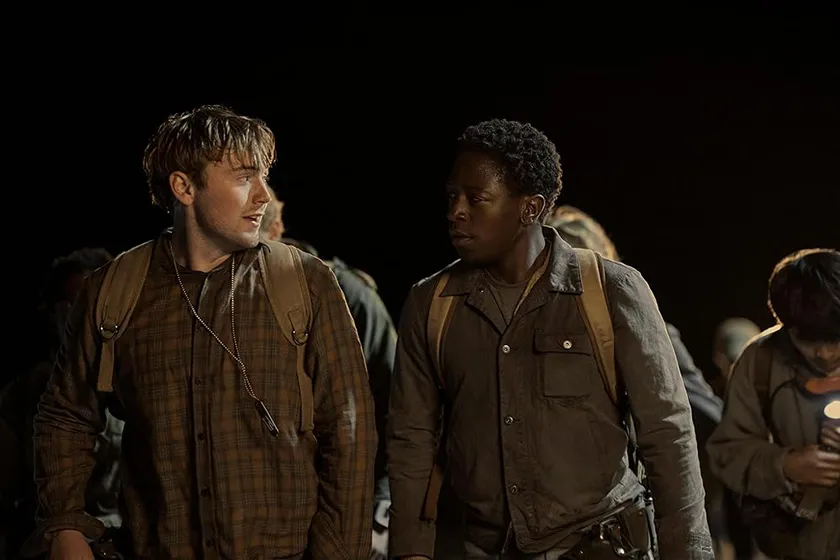
From the start, Peter is the heart of The Long Walk, an unwaveringly kind yet no-nonsense person who befriends and helps his competitors. One of his most prominent beliefs is that every moment matters. Even during the walk, which must end with all but one person dying, the talks and experiences everyone has are not for nothing. This clearly shows in how much he comes to deeply care for Ray in particular, having even been ready to sit down and die at the end before Ray turns the tables on him. Which is what makes it so shocking that he, after winning, completely goes back on that philosophy and gives in to his own darkness by shooting the Major.
The performance from Jonsson makes it very clear that Peter is now driven by pure, grief-stricken rage, no longer thinking rationally. For all we know, he may have not gone through with the violent act had he had a bit more time to process everything. Regardless, he’s proven as susceptible to the long walk’s ability to change people as everyone else. He just fell victim to it only at the end, after suffering the most upsetting, devastating loss of all.
Ironically, Peter is proven right about one thing: every moment matters. Ray and Peter’s friendship may have been short-lived, but it was strong and long-lasting enough to have influenced his final decision. He will always carry it and the choice he made with him… as is emphasized by the fact that he keeps walking despite having already won. Victory does not alleviate the emotional weight and burden of living in such a cold world. The long walk, in that sense, never truly ends for its winner.
It’s left unknown whether Peter will eventually face repercussions for killing the Major or remain allowed to go free, but that’s not the point. After the entire film has urged us to stay resilient and good through the hardest of trials, what is it then saying by undercutting that at the very last minute?
The Ultimate Message of The Long Walk
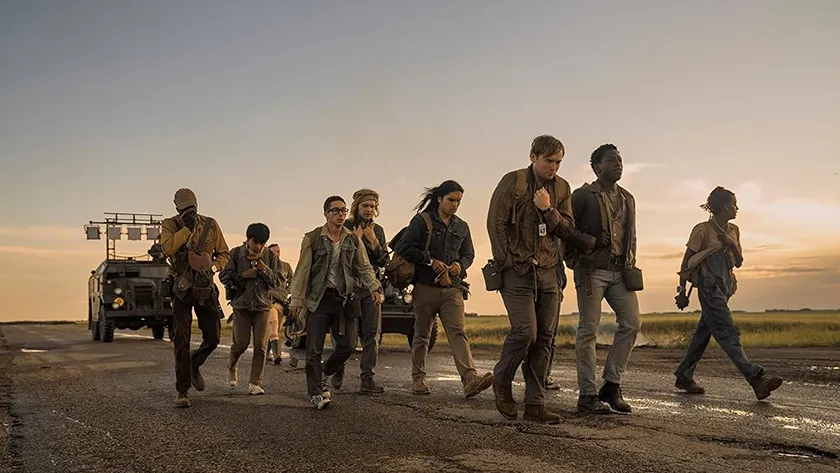
Though the original 1979 novel is commonly seen as a metaphor for the then-recent Vietnam War, it can be timelessly viewed as analogous to any miserable grinds that real-life authorities force us to go through, especially ones that make us watch others rot while we just keep moving ahead. Some of us become instantly jaded by these grinds, some are broken down over time, some hit low lows before redeeming themselves, and some find ways to keep their heads up all the way through. The Long Walk shows each of these perspectives in one microcosm, most of which are bent and twisted through the walk’s sheer persistence alone.
The film’s message, for the most part, seems to be that we should strive to achieve what Peter has through most of the film: a way to see the light through darkness. But the way I see it, the ending turns that message on its head by showing that anyone, even the most steadfast of souls, can be broken by hardships at some point. To paraphrase the Joker, all it takes is a little push to bring someone down. Ray’s death was Peter’s push. Everyone has their breaking point; it’s just a matter of whether the long walks we face will have us reach them.
The hopeful side of me believes Peter’s choice to not mean he’s a more hardened person forever, but rather that he will come to regret his choice and strive for love once more. Doing so will be difficult as he continues “walking” through life, but it’s like when any of us give into our darkest impulses. We’re all just human. The point is that the danger of losing sight of such goals will always be there. Or, maybe you could think that what Peter did was the right call, that the Major had to die for true change to begin, and that optimistic desires for peace are simply not feasible. This would make The Long Walk even more depressing, especially given recent events, but it opens itself up to that dour take.
I’ve also seen interpretations that Peter was actually killed after shooting the Major, and that him “walking” away is a visual means of showing him walking into his afterlife. The book apparently leans even harder into this ambiguity, and the golden glow of the final shot certainly conveys a sort of “heavenly” light as Peter walks towards it. I personally don’t see it that way, so I’ll let others delve deeper into that, but it’s a totally legit and fascinating read. Or maybe you could see the final image as symbolizing the “death” of Peter’s kindness.
In any case, The Long Walk leaves you on a very uncertain note. Whether that uncertainty comes from what’s really happening or how you’re supposed to feel is up to you, but rest assured that if you don’t know how to feel towards this ending, that’s very much the point.
The Long Walk is now available to watch in U.K. & Irish cinemas, in U.S. theaters, and globally in theatres. Read our review!

